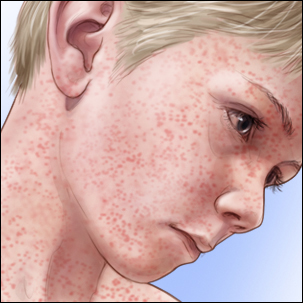If you're spending time outdoors in the brush, you're also at higher risk of brushing up against a poisonous plant. Exposure to plants like poison ivy can cause an itchy rash that lasts for weeks. So how do you treat it?
Jason Howland has more in this Mayo Clinic Minute.
Journalists: Broadcast-quality video pkg (0:59) is in the downloads. Read the script.
These unassuming plants can cause problems on your skin. Poison ivy, poison oak and poison sumac have an oily resin throughout the plant that can create an allergic reaction that lasts for weeks.
"Be aware of your surroundings," says Dr. Summer Allen, a Mayo Clinic family physician. "If [you] can, wear higher socks or longer clothing to cover [your] legs."
Dr. Allen says that if you come into contact with a plant like poison ivy, wash the exposed skin right away. Rashes typically appear red, slightly raised or swollen with occasional blisters.
"The hallmark for people is that the intense itching that they will feel from it and almost burning, and then redness on their skin," says Dr. Allen. "It can get infected if you itch it, and you open up one of the welts."
The rash typically goes away after a few weeks. Topical treatments include calamine lotion; oatmeal baths; a mixture of baking soda and water; or a cool, wet compress. And Dr. Allen offers another tip,
"Make sure to wash all [your] clothing."
Related Articles







